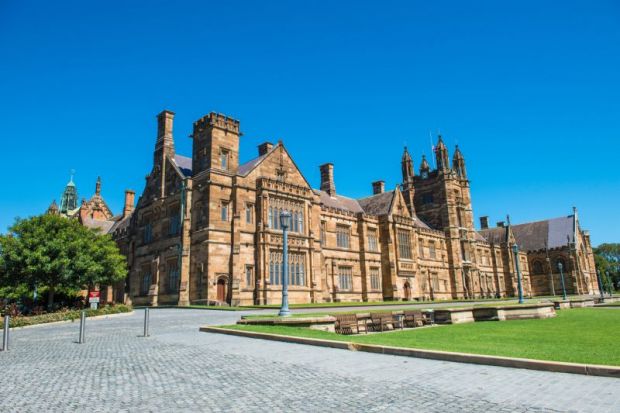If you were asked to name the world’s leading universities, a handful of ancient institutions in the UK and the US would likely roll off your tongue: Oxford, Cambridge, Harvard, Yale.
But which higher education institutions are best placed to challenge this elite group? And how do their characteristics differ from the “old stars”?
Meet the “international powerhouses” – a group of 53 global universities that have the greatest chance of catching up with and surpassing the likes of Oxbridge and the Ivy League, according to an analysis from Times Higher Education.
This cluster includes universities from 11 countries across North America, Europe and the Asia-Pacific region – such as Imperial College London, the University of Toronto and the National University of Singapore – but more than half (28) of the places are taken by institutions in the US.
The universities in this second tier are generally much younger than the traditional elite, with an average age of 180 years, compared with 350 years for the 10 established universities, based on data collected for the 2016-17 Times Higher Education World University Rankings.
And while the “old stars” tend to be well-rounded institutions, with strong reputations and citations across all major subject areas, the international powerhouses generally excel in a smaller number of subjects, often in particular clinical disciplines rather than the arts. Their research influence also tends to outweigh their prestige (see graphs).
THE data scientist Billy Wong, who conducted the analysis, said the cluster was created by mapping 980 universities’ citation scores and reputation votes across eight broad subject areas.
The institutions were then grouped into 10 clusters, based on their “proximity” and therefore similarity to other universities, he added.
Interviews with leaders of several universities in the group suggest that their strong medicine faculties and highly interdisciplinary research have led to their high scores in both clinical subjects and research citations.
Michael Spence, vice-chancellor of the University of Sydney, said the institution has invested “very heavily in large-scale multidisciplinary” research since 2010, which has attracted “very strong and highly cited researchers” to the institution.
“Being a university is really a talent management business. It’s about making sure you have the conditions right for clever people to do their thing,” he said.
“As soon as you start [research based on] a question the community is asking and not just a question academics are asking one another, the work becomes inherently multidisciplinary.
“What we’re finding is posing those questions is of interest to the very best researchers in the disciplines.”
Stephen K. Hashmi, vice-president of Heidelberg University, which is ranked 28th in the world for clinical subjects, agreed that attracting strong talent is vital to achieving high research influence.
He added that around a sixth of the students at his university are at PhD level, meaning that the institution produces high levels of basic research.
The institution is also the only university in Germany to have two separate medical faculties – one in Heidelberg and one in Mannheim – which is likely to be a key factor in its strengths in clinical subjects.
Professor Hashmi said that the university’s location, near the Max Planck Institute for Medical Research, the German Cancer Research Centre and the European Molecular Biology Laboratory, provides “strong backup” and means that basic research can quickly result in applications in the university’s medical clinics.
For example, the university has worked with technology companies to develop a new kind of radiation therapy for cancer patients, which targets radiation so that healthy tissue is not damaged during treatment, he said.
Meanwhile, Ohio State University, another member of the international powerhouses, has seven health sciences colleges and is one of just 30 institutions in the US with a college dedicated to veterinary medicine, said Caroline Whitacre, the university’s senior vice-president for research.
She attributed the institution’s success in citations to two initiatives: first, the establishment of “gateways” in China, India and Brazil, which has resulted in international research projects with scholars in those countries; and second, a university-wide programme aimed at hiring 350 new academics to solve “global problems” over a 10-year period.
The sale of the university’s car parking lease – which resulted in an up-front payment of $483 million (£392 million) to the university in 2012 – is helping to fund the second project, said Professor Whitacre.
California Institute of Technology, which was number one in the THE World University Rankings for five years from 2012 before being overtaken by the University of Oxford last year, also makes the international powerhouse group.
Mr Wong admitted that the THE rankings tend to reward well-rounded universities, but said Caltech’s small size meant it was better able to produce exceptional research in specific areas than some larger universities.
He added that up-and-coming universities that are looking to enter the international powerhouses cluster might want to follow Caltech’s lead and specialise in one or two subjects “where they can excel” in order to build their brand and reputation, “rather than trying to build broad-based excellence like Oxford and Cambridge”.
Top 20 international powerhouse universities, ranked by overall score in THE clinical subject ranking
| University | Country | Clinical rank |
| Imperial College London | United Kingdom | 4 |
| University College London | United Kingdom | 6 |
| Johns Hopkins University | United States | 8 |
| Duke University | United States | 11 |
| University of Melbourne | Australia | 13 |
| University of Toronto | Canada | 14 |
| University of Pennsylvania | United States | 15 |
| King’s College London | United Kingdom | 16 |
| Cornell University | United States | 17= |
| University of Washington | United States | 19 |
| University of Edinburgh | United Kingdom | 20 |
| University of Michigan | United States | 21 |
| McGill University | Canada | 23 |
| University of Chicago | United States | 24 |
| University of North Carolina at Chapel Hill | United States | 25 |
| Boston University | United States | 26 |
| Heidelberg University | Germany | 28 |
| Northwestern University | United States | 29= |
| University of California, San Diego | United States | 29= |
| National University of Singapore | Singapore | 31 |
Top 20 international powerhouse universities, ranked by citations score in THE World University Rankings
| University | Country | Citations rank |
| California Institute of Technology | United States | 4= |
| Carnegie Mellon University | United States | 9 |
| University of California, Santa Barbara | United States | 10= |
| University of Chicago | United States | 14= |
| University of California, San Diego | United States | 17 |
| Duke University | United States | 18= |
| University of Washington | United States | 18= |
| University of Pennsylvania | United States | 20= |
| Johns Hopkins University | United States | 22= |
| Boston University | United States | 25 |
| Imperial College London | United Kingdom | 28 |
| Cornell University | United States | 29 |
| Northwestern University | United States | 30 |
| Brown University | United States | 32= |
| École Polytechnique Fédérale de Lausanne | Switzerland | 34 |
| London School of Economics and Political Science | United Kingdom | 35 |
| University of North Carolina at Chapel Hill | United States | 36= |
| University of Edinburgh | United Kingdom | 39 |
| University of Michigan | United States | 41 |
| New York University | United States | 43 |
Full list of 53 international powerhouse universities, ranked by overall score in THE World University Rankings
Register to continue
Why register?
- Registration is free and only takes a moment
- Once registered, you can read 3 articles a month
- Sign up for our newsletter
Subscribe
Or subscribe for unlimited access to:
- Unlimited access to news, views, insights & reviews
- Digital editions
- Digital access to THE’s university and college rankings analysis
Already registered or a current subscriber? Login










